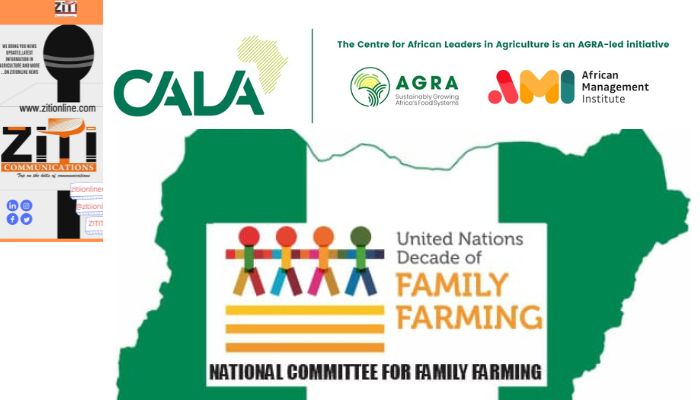By Queen Kunde
Civil society organizations, CSOs, The Horticultural Producers and Marketing Association of Kenya (HPMK), and The National Committee for Family Farming (NCFF) in Nigeria have called on African Heads of States and Governments to urgently address the looming hunger and Food insecurity facing the African Continent.
The call came as a result of the latest warning issued by the United Nations Agencies.
In a powerful joint statement delivered at the United Nations headquarters in New York, the Food and Agriculture Organization (FAO) and the World Food Programme (WFP) issued a stark warning about the escalating food insecurity crisis in Africa. The agencies presented the latest Early Warning Report, which highlighted 22 countries facing catastrophic levels of hunger, with particular emphasis on Nigeria and Kenya.
The report, titled “Hunger Hotspots Outlook”, outlines the alarming severity of food insecurity from November 2024 to March 2025. The countries listed as experiencing acute food insecurity include Nigeria, Kenya, Ethiopia, Somalia, Yemen, Lebanon, Haiti, and territories such as Gaza, among others. These regions, ravaged by conflict and compounded by climatic shocks like the ongoing La Niña phenomenon, face not only immediate humanitarian challenges but also longer-term risks to peace and economic stability.
A crisis in the making
The joint statement, signed by leading agricultural and humanitarian figures from Kenya and Nigeria, expressed deep concern over the convergence of violence, political instability, and economic collapse in many of these nations. Particularly in Nigeria and Kenya, the statement underscores the devastating impact of conflicts, such as Boko Haram insurgencies, banditry, and cattle rustling, which have stalled agricultural production and left millions vulnerable to starvation.
The statement emphasizes that agricultural production thrives in an environment of peace and stability. However, ongoing political and social unrest, including kidnappings, extra-judicial killings, and separatist movements in some regions, has crippled local economies, particularly in northern Nigeria and parts of Kenya.
“The situation in countries like Nigeria, Burkina Faso, and Mali is dire,” the statement warns. “Protracted conflict has stagnated food production and left vast populations without access to sufficient nutrition.”
A call for immediate government action
The authors of the statement called for urgent, decisive actions from African governments, the African Union Commission (AUC), and international partners. They pointed to the *Maputo Declaration* of 2003, where African leaders committed to allocating 10% of their GDP to agriculture—a promise that has yet to be fully realized.
“We call on our heads of state to honor this historic declaration by prioritizing the agricultural sector,” the statement reads. “A shift from rain-fell to irrigated agriculture, alongside strategic investments in rural development, is critical to ensuring food security in the future.”
The statement also underscores the vast untapped potential of Africa’s natural resources. With 65% of the continent’s land arable and a burgeoning youth population, Africa has the capacity to become a global food powerhouse. “Africa must feed its 1.3 billion people,” the signatories insist, noting that agriculture can solve both hunger and youth unemployment by creating millions of jobs in agri-processing and manufacturing.
Youth empowerment through agriculture
The joint statement promotes a “Youth in Agribusiness Revolution” across the continent, particularly in Kenya and Nigeria. The vision is to equip young people with the tools and networks to thrive in agriculture, thereby addressing the dual crises of food insecurity and youth unemployment. The statement envisions that with the right policies and institutional support, the agricultural sector can serve as a catalyst for social and economic transformation.
“Youth and women, especially in marginalized communities, need access to scalable livelihoods that will foster self-esteem, dignity, and economic independence,” the statement reads. “Agriculture can provide this pathway, leading to sustainable, resilient food systems that can withstand future climate shocks.”
The urgency of action
As FAO Director-General Qu Dongyu and WFP Executive Director Cindy McCain have warned, the hunger situation in Africa is projected to worsen unless immediate action is taken. Governments are urged to invest heavily in agriculture and to resolve conflicts that are obstructing economic recovery.
The statement concludes with a strong plea: “Any minute wasted is a minute that costs lives. Africa cannot afford to wait any longer. The time for action is now.”
The joint statement was signed by Naphtaly Waruhiu, CEO of the Horticultural Producers and Marketing Association of Kenya (HPMK), and Raymond Nyayiti Enoch, National Coordinator of the National Committee for Family Farming (NCFF) in Nigeria. Both organizations have long been advocating for greater investment in Africa’s agricultural sectors as a means of addressing both hunger and poverty.
